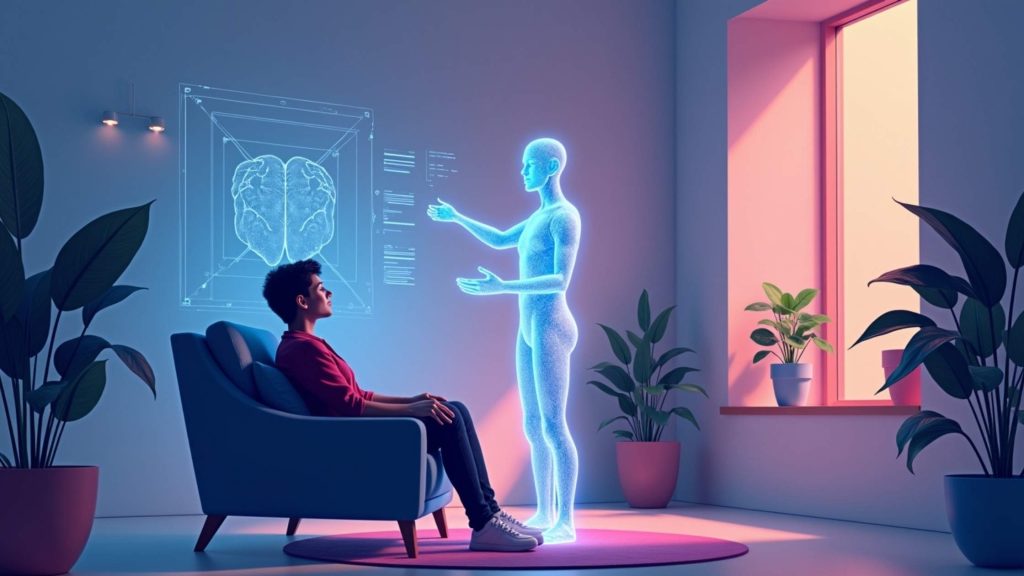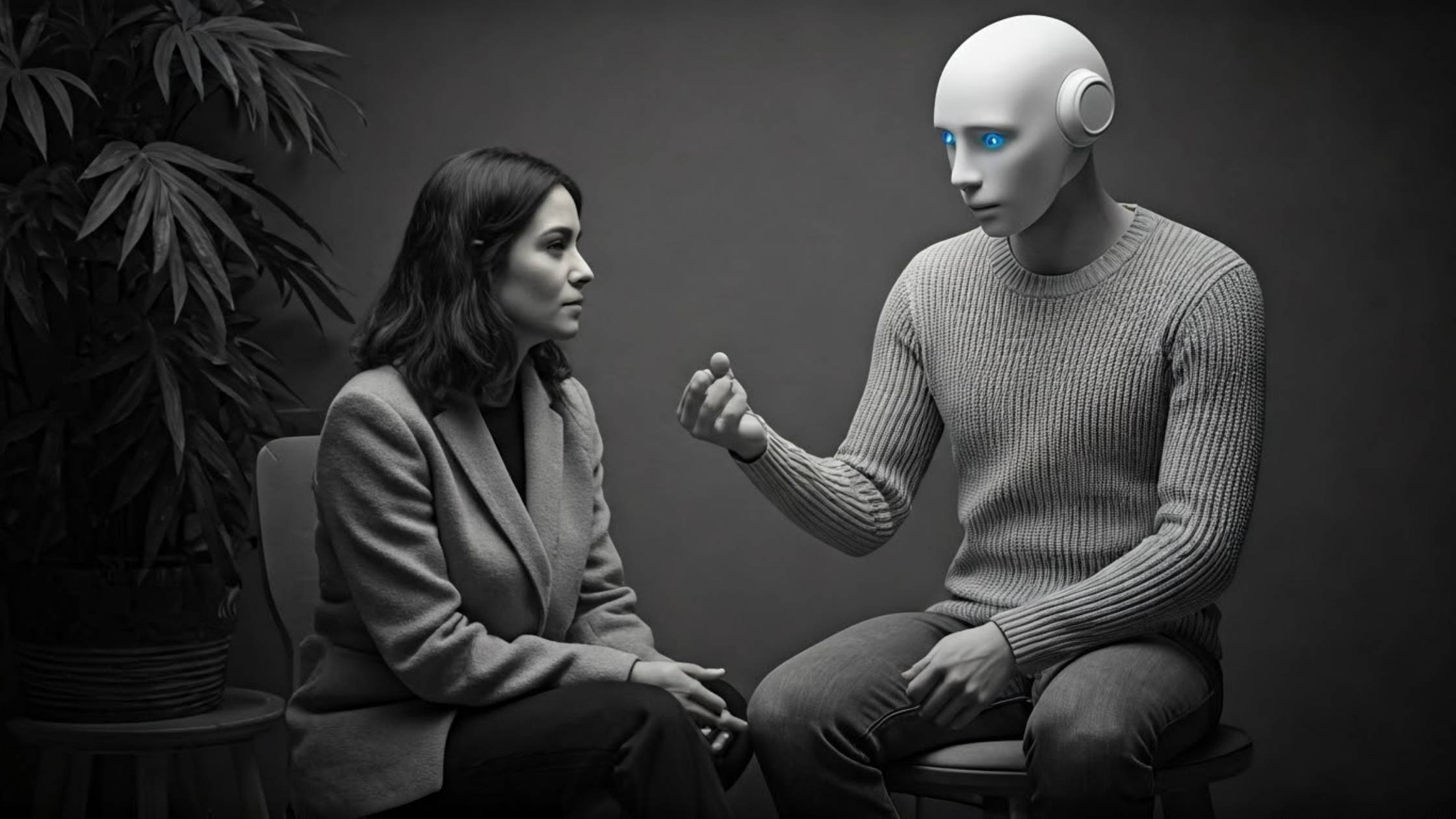The conversation around AI in mental health is growing as demand for accessible mental health care rises. While traditional therapy remains essential, advancements in artificial intelligence (AI) are revolutionizing the way we approach mental well-being. AI-powered mental health platforms and apps now provide personalized emotional support, real-time interactions, and guide users through therapies like Cognitive Behavioral Therapy (CBT), making care more accessible and scalable than ever before.
This blog explores the roles of AI in mental health care, the benefits it offers, and the challenges that come with integrating AI into such a sensitive and personal field.
Role of an AI in Mental Health

- AI-Powered Chatbots
Platforms like Woebot and Wysa have developed AI-driven chatbots that offer real-time emotional support to users. These chatbots use natural language processing (NLP) to simulate conversations, allowing users to discuss their feelings in a safe, judgment-free space. - Immediate Access to Support
One of the key benefits of AI in mental health is the immediacy it provides. Users can access support 24/7 without waiting for an appointment or worrying about therapist availability. This immediacy is crucial for individuals experiencing sudden bouts of anxiety or distress. - Guided Therapy Sessions
AI tools often provide guided therapeutic interventions, like Cognitive Behavioral Therapy (CBT). By asking questions, providing exercises, and offering coping strategies, AI-driven platforms help users address negative thoughts and behaviors. - Data-Driven Insights
AI systems can track user interactions and behaviors over time, collecting data that helps identify patterns or triggers of mental health challenges. This data-driven approach allows AI platforms to offer more personalized support and insights.
The Benefits of AI in Mental Health
AI’s integration into mental health care brings several key advantages:
- Accessibility
AI platforms provide access to support for individuals who might otherwise struggle to find mental health care. Whether due to financial constraints, geographic barriers, or the stigma surrounding therapy, AI makes emotional support more available to all. - Non-Judgmental Space
One of the reasons users may find AI helpful is the lack of judgment. Some individuals are more comfortable sharing their thoughts with an AI, knowing that they won’t face criticism or bias. - Affordability
Traditional therapy can be costly, especially for individuals without insurance. AI-driven platforms are typically more affordable or even free, making mental health care more financially accessible. - Scalability
With the growing global mental health crisis, there’s a shortage of trained mental health professionals. AI can help bridge the gap by providing scalable, automated support to millions of people simultaneously, something traditional therapy models cannot achieve.
Challenges of Using AI in Mental Health
While AI offers significant advantages, it’s not without challenges:
- Lack of Human Empathy
AI systems, no matter how advanced, cannot fully replicate the empathy and nuanced understanding that human therapists offer. Mental health support often requires deep emotional intelligence, which AI lacks. - Ethical Concerns and Privacy
The collection of sensitive data by AI systems raises concerns about privacy and ethics. Ensuring that user data is protected and used responsibly is critical in the development of AI mental health platforms. - Complexity of Mental Health
Mental health issues are highly complex, and while AI can provide support, it cannot replace the nuanced understanding that comes with face-to-face interactions with a therapist. AI can supplement therapy but should not be viewed as a replacement for professional mental health care.
AI in Therapy: The Future

The future of AI in mental health is bright, with many exciting developments on the horizon:
- Integration with Human Therapists
Rather than replacing therapists, AI tools will increasingly work alongside human professionals. Therapists will be able to use AI platforms to track patient progress, gather data, and provide more tailored treatment plans. - Emotionally Intelligent AI
As AI technology advances, there’s a strong focus on developing emotionally intelligent AI. These systems will better understand user emotions and respond in a way that feels more human and empathetic. - Early Detection of Mental Health Issues
AI systems can analyze user behaviors and language patterns to detect early signs of mental health issues. By identifying these signs early, AI can help users seek treatment before their condition worsens. - Virtual Reality (VR) Therapy
VR, combined with AI, will create immersive therapy experiences where users can confront their fears, manage anxiety, and practice coping techniques in a controlled environment.
Conclusion
AI is opening new doors in the field of mental health, offering scalable, accessible, and affordable support for millions. While it cannot replace human therapists, AI-driven tools complement traditional mental health care, making support available anytime, anywhere. As AI continues to evolve, we can expect more personalized, emotionally intelligent AI platforms that will help users navigate their mental health journeys with greater ease.
